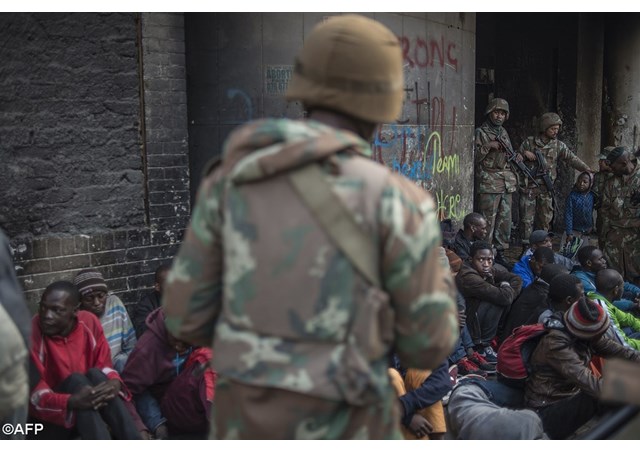
South Africa and xenophobia, one month on

(Vatican Radio) It has now been a month since xenophobic violence and protests erupted in South Africa concerning foreign African nationals living in the country. While the violence has calmed down, underlying issues of poverty and frustration have yet to be addressed.
Michael Cornell interviewed the Director of the Jesuit Institute South Africa, Fr Russell Pollitt SJ, for an update on the situation:
Victim Blaming and Scapegoating
Father Pollitt says authorities have responded by resorting to victim blaming and scapegoating. The key underlying issues of poverty and injustice have instead been neglected. This is in spite of a number of official reports being released following the last major incident in 2008, where 62 people were killed.
Churches, ‘Hotspots’ raided
At 3.30am on Friday 8th May, police and military raided the Central Methodist Church in Johannesburg, in the South African Police Services described as a “crime-prevention clean-up" which resulted in the arrest of a number of people who had been living there. The Central Methodist Church opened its doors to thousands of foreign nationals during the 2008 xenophobic riots.
Church Response
The Catholic Bishops of South Africa have condemned the violence and have spoken to the Government about addressing the key issues that are underneath the xenophobic violence. In acts of charity local Catholic parishioners brought clothing and food to the makeshift refugee camps in order to provide some comfort for the foreign nationals who had to flee their dwellings in order to seek safety.
Church organisations have come together to formulate a response and create a united plan for talking about social cohesion and key issues facing the South African and immigrant populations. Father Pollitt lists them as, the Bishops’ conference, Jesuit Refugee Services, the Scalabrinian Missionaries, the Denis Hurley Centre in Durban.
South African Government Caught Politically
The political situation in South Africa is changing. According to Father Pollitt “after years of popular support, because they [the government] are failing to deliver, a lot of people are getting fed up … many disaffected people are angry .. and so we feel the government for political reasons are scapegoating foreigners.”
Afro-phobia and Apartheid Systems
Required documents and permission of local leaders, these are some of the ideas being raised in South Africa which only twenty years ago Apartheid. The comparisons between current ideas and the present government response with the Apartheid era has not gone unnoticed, “some of the systems of Apartheid and some of the mechanisms used to control people, we are certainly seeing those types of strands in what is being done” Father Pollitt adds.
| All the contents on this site are copyrighted ©. |


